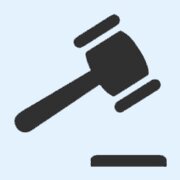Best Debt & Collection Lawyers in Texas
Share your needs with us, get contacted by law firms.
Free. Takes 2 min.
Or refine your search by selecting a city:
List of the best lawyers in Texas, United States
About Debt & Collection Law in Texas, United States
Debt and collection law in Texas governs the obligations of individuals and businesses who owe money, as well as the rights and restrictions on creditors and collection agencies who attempt to collect those debts. The state of Texas has both federal and state laws in place to protect consumers from unfair or abusive collection practices, as well as to specify how debts can be pursued legally. Texas also has strict rules on exemptions and protections for certain types of property and income, providing debtors with important safeguards.
Why You May Need a Lawyer
Many people consider seeking legal assistance when they are dealing with issues involving debt or collections, especially if the situation is complicated or stressful. Common situations where legal help can be beneficial include:
- The debt is in dispute or you believe you do not owe the debt.
- You are being sued for a debt or served with a court summons.
- A creditor or collection agency is harassing you or violating your rights.
- Your property or wages are at risk of being garnished.
- You wish to negotiate a debt settlement or repayment plan.
- You are considering bankruptcy or want to understand how your debts may be affected.
- You receive threatening or misleading communications about a debt.
- You have concerns about identity theft or fraudulent debts.
- You want to protect exempt property or preserve essential assets.
- A business is struggling with debt collection or enforcement against clients or customers.
Local Laws Overview
Texas debt and collection law includes several key aspects that make it unique and important for both debtors and creditors to understand:
- Statute of Limitations: Texas generally allows creditors to collect on a debt for four years after the date it became delinquent. After that time, the debt is considered "time-barred."
- Wage Garnishment Restrictions: Texas prohibits wage garnishment for most debts, except for certain obligations like child support, student loans, and taxes.
- Homestead Exemption: Texas offers one of the most generous homestead exemptions in the United States, often protecting a person's primary residence from creditors seeking to collect most types of debts.
- Fair Debt Collection Practices Act (FDCPA): This federal law applies in Texas, restricting tactics debt collectors can use, such as harassment, false statements, and contacting you outside of certain hours.
- Texas Debt Collection Act: This state law supplements the FDCPA and provides additional protections for Texas residents against abusive collection practices.
- Process for Lawsuits: Creditors must follow legal procedures when suing for unpaid debts. Consumers must be properly served, have the opportunity to respond, and can appear in court to defend themselves.
- Exempt Property: Many types of personal property are protected from seizure, including a certain value in vehicles, home furnishings, and tools of your trade.
Frequently Asked Questions
What can creditors legally do to collect a debt in Texas?
Creditors may contact you to request payment, report debts to credit bureaus, and file a lawsuit if the debt is not paid. If they win a lawsuit, they can attempt to collect through certain allowable methods but cannot garnish wages except in limited situations. They must obey both federal and Texas debt collection laws.
What are my rights if a debt collector is harassing me?
You have the right to be free from harassment and abuse under state and federal law. If a collector is calling excessively, using inappropriate language, making threats, or contacting you at odd hours, you can report them to state and federal agencies and may consider legal action.
Can my wages be garnished for unpaid debt in Texas?
Generally, wages cannot be garnished for consumer debts in Texas, with exceptions for child support, federally guaranteed student loans, and certain taxes.
How long can a creditor try to collect a debt in Texas?
Creditors generally have four years from the date of default to file a lawsuit on most debts. After four years, the debt is typically time-barred, though it may still appear on your credit report for up to seven years.
Does settling a debt for less than you owe affect your credit?
Yes, debt settlements are often reported as "settled" or "paid for less than full balance" on your credit report, which can negatively affect your credit score, though usually less so than an unpaid debt.
What property is protected from creditors in Texas?
Texas law protects certain assets, including your primary home (homestead), a specified value in vehicles, furnishings, and some personal property. These exemptions apply to most debts, though not all (such as mortgage or tax liens).
Do I have to go to court if I am sued for a debt?
If served with a lawsuit, you must respond by the deadline or risk a default judgment against you. Attending court may help you assert your defenses, negotiate, or explain your situation to the judge.
What should I do if I am served with a debt collection lawsuit?
Carefully read the lawsuit papers, determine the response deadline, and file an answer with the court. Consider seeking legal help right away, as not responding could result in a judgment being entered against you.
Are there any free or low-cost legal resources in Texas for debt help?
Yes, various legal aid organizations and government agencies provide free or low-cost assistance to people facing debt and collection issues in Texas. These resources can help you understand your rights and options.
How do I dispute a debt or verify that it is legitimate?
You have the right to request written verification of a debt from a collector. If you believe the debt is incorrect, notify the collector in writing within 30 days of first contact to dispute it. They must provide evidence before continuing collection efforts.
Additional Resources
If you are dealing with debt or facing collection efforts in Texas, the following resources and organizations may be helpful:
- Texas Attorney General - Consumer Protection Division: Offers information and takes complaints regarding debt collection practices.
- Texas Department of Banking: Regulates some lending and collection activities and takes consumer complaints.
- Texas Legal Services Center: Provides free legal resources and sometimes representation for qualifying individuals.
- Legal Aid of Northwest Texas: Offers free or low-cost legal help to qualified residents.
- Federal Trade Commission (FTC): Enforces the federal Fair Debt Collection Practices Act (FDCPA) and offers extensive consumer information.
- Consumer Financial Protection Bureau (CFPB): Accepts complaints about debt collection and provides educational tools and sample letters for disputing debts.
Next Steps
If you are facing collection efforts, receiving harassing calls, or have been sued for a debt in Texas, consider the following next steps:
- Gather all documentation related to your debt, including letters, bills, and court papers.
- Carefully review any legal notices or court summons for deadlines and response requirements.
- Contact a qualified attorney who can review your case, explain your options, and help you prepare a response or negotiate with creditors.
- If you cannot afford a private attorney, reach out to a local legal aid organization for assistance.
- Do not ignore collection attempts or legal documents. Timely action is essential to protect your rights and interests.
- Know your rights by reviewing resources from government agencies or trusted legal organizations.
Taking prompt, informed action can help protect your assets, reduce stress, and ensure you are treated fairly throughout the debt and collection process in Texas.
Lawzana helps you find the best lawyers and law firms in Texas through a curated and pre-screened list of qualified legal professionals. Our platform offers rankings and detailed profiles of attorneys and law firms, allowing you to compare based on practice areas, including Debt & Collection, experience, and client feedback.
Each profile includes a description of the firm's areas of practice, client reviews, team members and partners, year of establishment, spoken languages, office locations, contact information, social media presence, and any published articles or resources. Most firms on our platform speak English and are experienced in both local and international legal matters.
Get a quote from top-rated law firms in Texas, United States — quickly, securely, and without unnecessary hassle.
Disclaimer:
The information provided on this page is for general informational purposes only and does not constitute legal advice. While we strive to ensure the accuracy and relevance of the content, legal information may change over time, and interpretations of the law can vary. You should always consult with a qualified legal professional for advice specific to your situation.
We disclaim all liability for actions taken or not taken based on the content of this page. If you believe any information is incorrect or outdated, please contact us, and we will review and update it where appropriate.
Browse debt & collection law firms by city in Texas
Refine your search by selecting a city.















